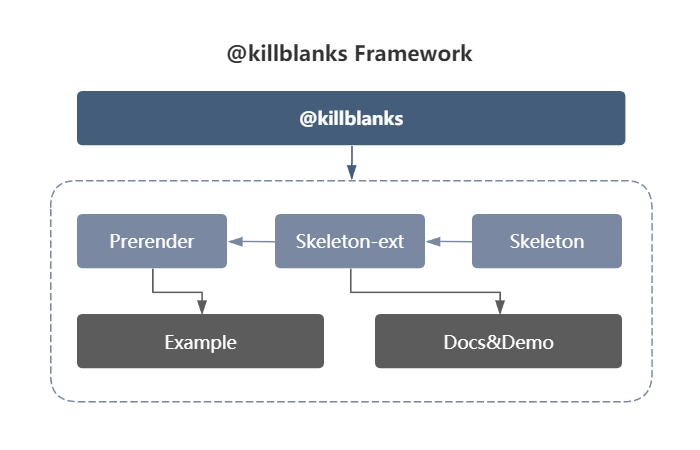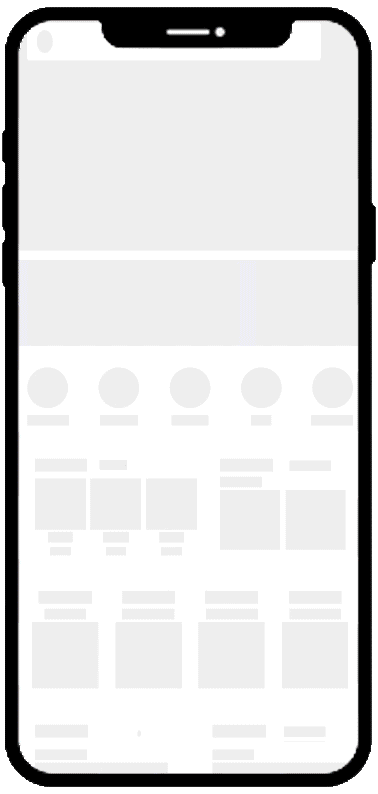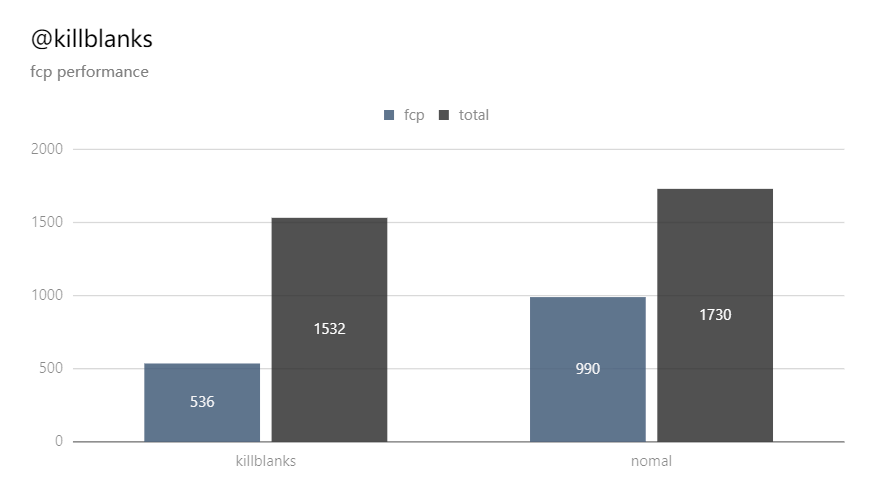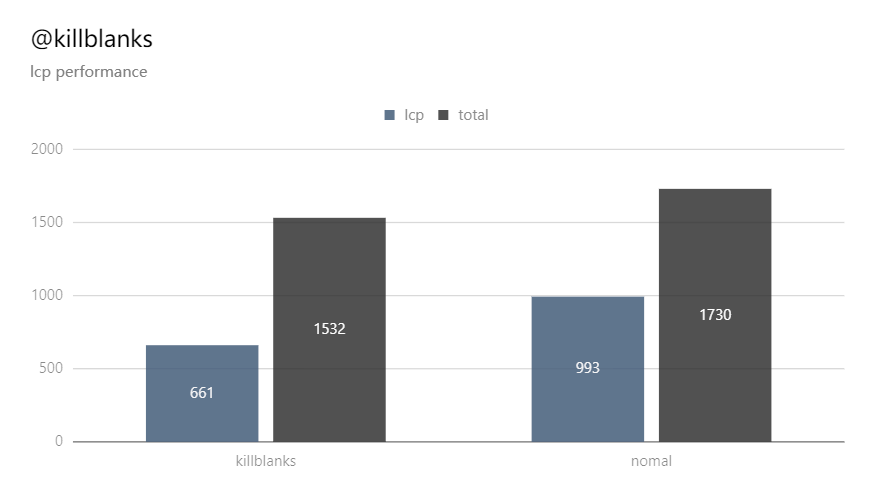# Background
White screens have always been a major problem that has plagued the front-end when the CSR project was born. How to increase the waiting time of users, reduce the bounce rate, and improve the page performance at low cost is the front-end has been solving problems, killblanks is one This kind of solution directly generates a skeleton screen from the page node, and pre-renders the user to display the outline of the content while waiting for the content to load, providing a better user experience and making the content feel faster.
# Principle
Use Purpeteer to simulate the browser request page function, load the page of @killblanks/skeleton-ext to generate the skeleton screen component, and directly output the html file
# Frame

# Effect

# Quick start
# 1. Install
yarn add @killblanks/prerender -D
# 2. Config
// webpack.config.js
const prerender = require('@killblanks/prerender')
export default {
...
plugins: [new prerender()]
...
}
- For more information, please check@killblanks/prerender
# 3. Use @killblanks/skeleton-ext
- For more information, please check@killblanks/skeleton-ext
# 4. Use the generated skeleton screen components in the project
- For example, like what is done in DEMO (opens new window)
// index.vue
<template>
<div class="container">
<skeleton :show="!!filterProductList.length">
<div class="productionList">
<div v-for="(item, key) in filterProductList" :key="item.goods_id + key" class="production">
xxx
</div>
</div>
</skeleton>
</div>
</template>
<script>
import skeleton from './skeleton'
export default {
components: {
skeleton
},
data: () => {
return {
filterProductList: []
}
},
mounted() {
setTimeout(() => {
const res = JSON.parse(
`{"goods_id":"5e7d6d331d41c801b95f594f","name":"skeleton-test","photo":"https://o-static.ihago.net/ikxd/e62403ac0d365c57b4dbc1a0ab7e9cf4/128.png","svga_photo":"","tag":"new","type":1,"type":1805,"real_price":199,"price":299,"discount":8000,"update_time":1594695268}`
)
this.filterProductList = Array(10).fill(res)
}, 3000)
}
}
</script>
// skeleton.vue
<script>
import Vue from 'vue'
const skeletonLoader = {
name: 'skeletocnLoader',
functional: true,
props: {
show: {
type: Boolean,
default: false
}
},
render(h, context) {
const { show } = context.props
if (!show || window.__PRERENDER_INJECTED__) {
const html = `<div>xxx</div>`
const component = Vue.compile(html)
return h(component)
} else {
return context.children[0]
}
}
}
export default skeletonLoader
</script>
# 5. Enter PRERENDER_SKELETON in the Chrome console to start the skeleton screen preview
# Performance
# Data Sources:
Use the company's online activities in Indonesia to conduct abtest to obtain relevant data
# Data:
| type | total | fcp | lcp |
|---|---|---|---|
| @killblanks | 1532 | 536 | 661 |
| Normal | 1730 | 990 | 993 |
# First-contentful-paint(fcp) (opens new window)

- FCP average comparison: 536: 990 @killblanks can increase
454ms, an average increase of45%
# Largest-contentful-paint(lcp) (opens new window)

- LCP average comparison: 661: 993 @killblanks can increase
332ms, an average increase of33.4%
